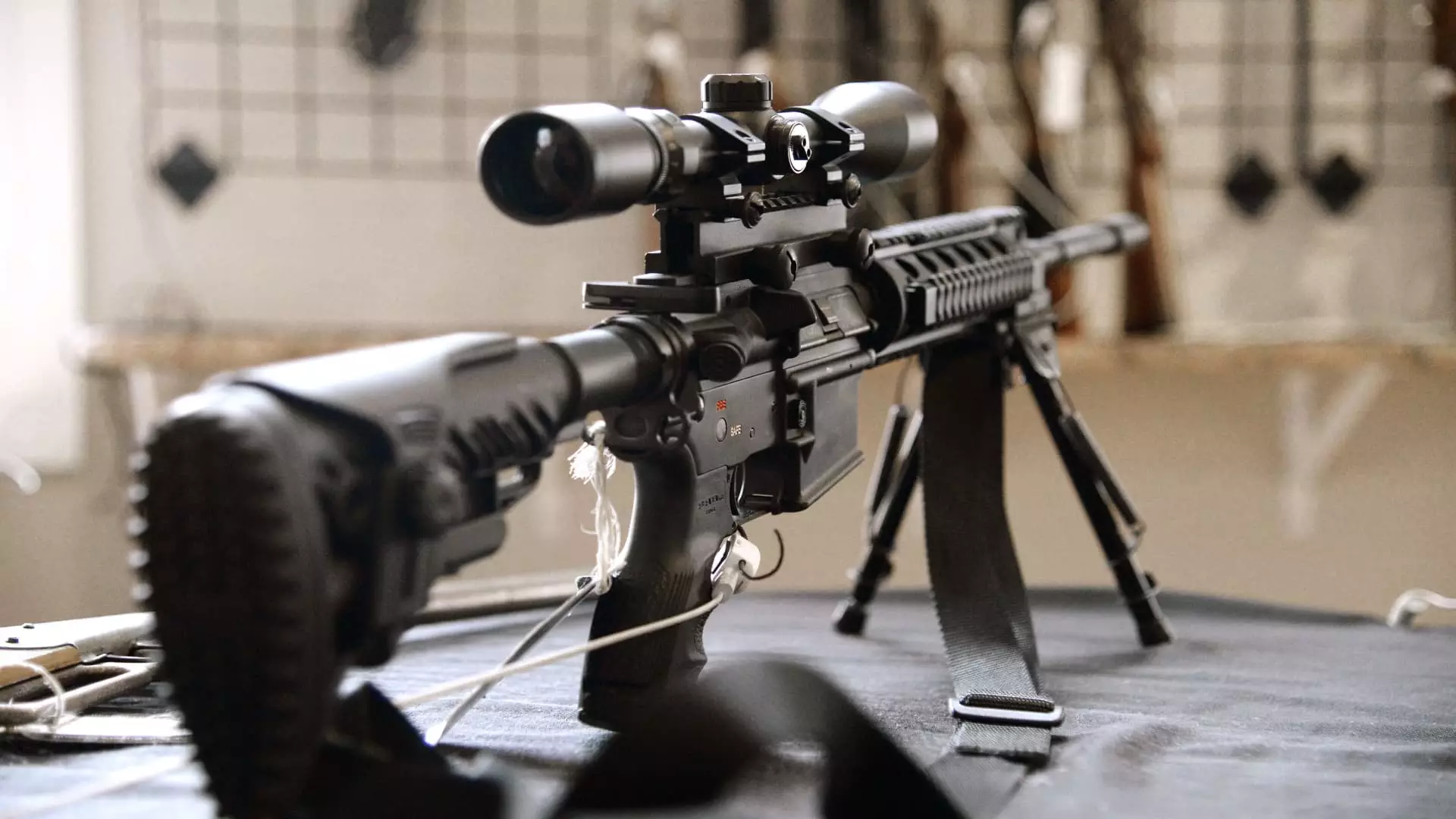Nestled in the smallest state in the union, Rhode Island is making strides that could resonate powerfully across the nation. Recently, the Democratic-controlled state House took a significant step by approving legislation that aims to ban the sale and manufacturing of semiautomatic rifles, commonly labeled as assault weapons. As the bill heads to Governor Dan McKee’s desk, supporters are hopeful for a transformative change that places public safety over the gun culture’s stronghold. This initiative is not merely bureaucratic maneuvering but reflects a growing demand among ordinary citizens who are fatigued by the relentless wave of mass shootings that plague the United States—a phenomenon intricately linked with these types of weapons.
A Necessary Evil: Incremental Steps Toward Safety
For more than a decade, gun control advocates in Rhode Island have tirelessly pushed for such legislation. Yet, despite being a Democratic bastion, politicians have often found themselves mired in debates over the necessity and constitutionality of gun regulations. Interestingly, this proposed bill only pertains to the sale and manufacturing of these lethal tools rather than outright banning possession. While it might appear as a cautious approach, this law signifies a pragmatic acknowledgment that change in gun policy, albeit incremental, is still progress. As Representative Rebecca Kislak articulated during the floor debates, “I am gravely disappointed we are not doing more, and we should do more.” Her words echo a sentiment many share: that passing any legislation is preferable to inaction, even if it’s not comprehensive.
Resisting Change: Opponents’ Arguments
Resistance, however, is par for the course in such charged discussions. Detractors from the Republican side argue that such bans do little to deter gun violence and merely penalize responsible gun owners. Senator Thomas Paolino encapsulated this sentiment when he remarked, “This bill doesn’t go after criminals; it just puts the burden on law-abiding citizens.” To propose that law-abiding citizens bear the brunt of such laws, however, oversimplifies a complex reality. The argument glosses over the fact that the very existence of assault weapons poses a tangible risk, especially in the hands of a few who may not treat this responsibility with the seriousness it warrants.
Moreover, Republican House Minority Leader Michael Chippendale’s prediction that the legislation could be deemed unconstitutional by the U.S. Supreme Court introduces another layer of discussion. His point raises unsettling concerns about the judiciary’s role in shaping or unshaping public safety; however, it also feels like a threat meant to scare constituents from embracing the bill. Rather than self-censure, wouldn’t it be more prudent for politicians to advocate for laws that reflect societal needs?
Voices within the Movement
Interestingly, not all opposition comes from the political right. David Hogg, a notable gun control advocate, alongside organizations like the Rhode Island Coalition Against Gun Violence, has criticized the proposed law as being “the weakest assault weapons ban in the country.” Hogg’s assertion reflects a growing frustration among advocates who understand that real change requires comprehensive measures that encompass both sale and possession bans. By tacitly accepting watered-down legislation, we risk ensuring that public safety remains subordinate to half-measures.
Elisabeth Ryan from Everytown for Gun Safety made an important rebuttal: “The weakest law is what Rhode Island has now, no ban on assault weapons.” Her perspective underscores the irony of political maneuvering that seeks to appear active but ultimately falls short. If we are serious about safeguarding our communities, we must push for ambitious solutions rather than settling for the bare minimum.
The Broader Context: National Implications
Rhode Island’s situation is symptomatic of a broader national dilemma that pits the Second Amendment against the fundamental right to safety. Assault weapons, particularly AR-15-style rifles, have become synonymous with mass violence, yet they fill the shelves of gun stores with alarming frequency. As legal challenges to such bans loom on the horizon, the question becomes, how far are we willing to go to protect the sanctity of life?
As we watch Rhode Island navigate this contentious terrain, it serves as a vital case study for other states pondering similar legislation. With the backing of a supportive, albeit cautious, political environment, Rhode Island could forge a path forward in combating gun violence—a model that other states might find both aspirational and necessary. Perhaps it is time for lawmakers to prioritize humanity over ammunition, taking definitive steps toward a future where public safety is not negotiable.


Leave a Reply